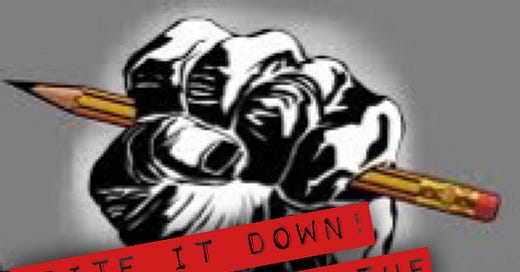How will we as a species survive our collective soul suffering?
What will be the legacy of our longing - long after we are gone?
For many victims of violence and unspeakable horrors one of the only and last remaining sources of relief is the documentation of what happened - the witnessing of the wrongdoing that will outlive us and will tell our tale, surviving beyond us. This is not just so that future harm is reduced or avoided - but also to let our voice be heard, our hurt held by hearts of others.
As this latest bloody chapter of the Israeli-Palestinian conflict continues to claim lives and hopes, voices on all sides of this horror are documenting their pain and creating accounts that will outlive this moment, as a grim testimony of trauma. Bereaved relatives and friends join victims and survivors to cry out for remembrance, refusing to let this suffering fade into silence.
But does preserving the pain for the future help those who suffer deal better with their fate and help the healing?
One of Palestinian poet Mahmoud Darwish’s most famous poems begins with these defiant lines:
"Write down!
I am an Arab...
Does my status satisfy you?
I am a name without a title."
Darwish’s words, forged in the crucible of displacement and pain, mirror the universal human longing to be seen, to have one’s suffering recorded and recognized. His poetry transforms personal and collective anguish into a testament of resilience, ensuring that the voices of the oppressed are not erased by the passage of time or the machinery of conflict.
This longing for permanence echoes through the ancient story of Job.
In chapter 19, as he responds to his pious and obtuse friends, Job cries out in agony, describing his loneliness and isolation: All who loved him have left him to rot, his suffering made worse by being abandoned.
What gives him some sense of relief is the hope that his story survives. He pleads for his words to be immortal:
מִי־יִתֵּן אֵפוֹ וְיִכָּתְבוּן מִלָּי מִי־יִתֵּן בַּסֵּפֶר וְיֻחָקוּ׃ בְּעֵט־בַּרְזֶל וְעֹפָרֶת לָעַד בַּצּוּר יֵחָצְבוּן׃
Oh that my words were now written! oh that they were inscribed in a book!
that with an iron pen and lead they were engraved in the rock for ever!
Job 19:22-24
Job’s plea is not just for vindication but for his pain to be immortalized, for his lament to stand as a monument against the fleeting nature of human suffering.
Like Darwish and like Job, Etty Hillesum, writing from the horrors of Nazi-occupied Europe, shared this belief in the redemptive power of writing. In her diaries, she reflects,
“Suffering must become a creative force. Give your sorrow all the space and shelter in yourself that is its due, for if everyone bears their grief honestly and courageously, the sorrow that now fills the world will abate.”
For Job and for countless people and poets since his story was indeed written down for us to reflect on, writing is an act of defiance and hope—a means to give suffering both form and meaning, transforming it into a bridge that connects the individual to the collective.
To write, as Job wished, is to bear witness. It is to carve our grief into the rockbottom of reality, ensuring that the pain and loss of today become lessons and warnings for the future. Job’s words became the bible, as the poems of Darwish and the reflection of Hillesum inspire readers today.
In the act of recording our sorrows, our histories survive, our soul stories live on, providing prospects for empathy and understanding, a possibility for healing and even redemption. Words written in tears, endure, as Job’s words have, to hold our hearts and give us hope - even during our darkest moments.
Every word is a gift from one generation to the next, our legacy of living life out loud with as much courage and love as we can possibly muster.
Below the Bible Belt: 929 chapters, 42 months, daily reflections.
Become a free or paid subscriber and join Rabbi Amichai’s 3+ years interactive online quest to question, queer + re-read between the lines of the entire Hebrew Bible. Enjoy daily posts, weekly videos and monthly learning sessions. 2022-2025.
Become a Paid Subscriber? Thank you for your support!
#Job #IYOV #Job19 #hebrewbible #כתובים #Ketuvim #Hebrewbible #Tanach #929 #איוב #חכמה #labshul #belowthebiblebelt929
#writingashealing #Writedown! #Darwish #Palestinianpoetry #resist! #EttyHillesum #immortalwords #peace #prayforpeace #nomorewar #hope #peaceisposible #life’sbigquestions #wordswillhealus #nevergiveup




poets pen pain
lol
Also all the other diaries and drawings which were secretly created in the camps...